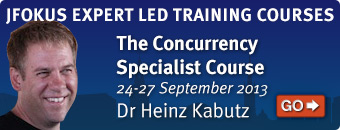Tack
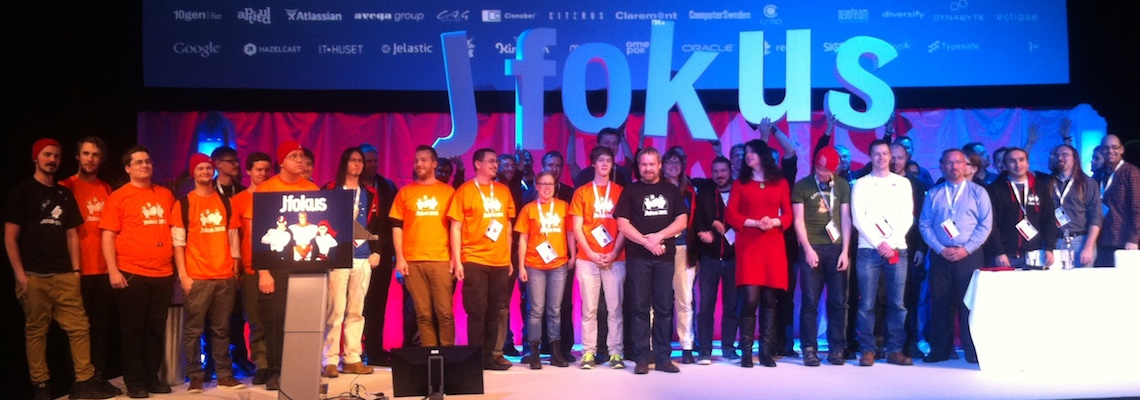
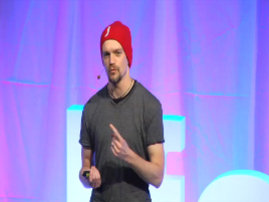
Modern Software Development Anti-Patterns
Martijn Verburg, jClarityThe Diabolical Developer and Ben Evans (the voice of reason!) present a host of modern software development anti-patterns. This session provides a wealth of tips and tricks to free you from the chains of so call ?modern software development best practices?.
We're not delivering software any more successfully than our forebears! So what?s really going on? Well things like Agile and Software craftsmanship certainly take you down some dangerous paths, and don?t even get us started on Java 7! You?ll learn about topics such as how to unleash the awesome power of:
* Mortgage Driven Development
* Pokemon Patterns
* Conference Driven Delivery
* The AbstractFactoryFactoryManagerBuilder class
* Can Haz Cloud
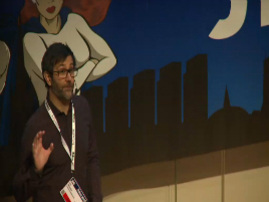
Javascript beyond jQuery
John Wilander, Svenska HandelsbankenJavascript is the language people love to hate, but it's also a reality if you are doing web development. The aim of this presentation is to give the audience some inspiration and Javascript some love.
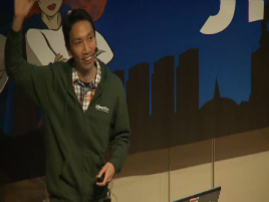
Large-Scale Automation with Jenkins
Kohsuke Kawaguchi, CloudbeesJenkins is the most adopted open source continuous integration server today, and beyond the automated build and test, it is a platform for launching all kinds of automation tasks. As the use of Jenkins grows inside an organization, people are automating complex activities that need to be choreographed, such as deploying an application, running a load test, cleaning up the environment, and then handing over the build to the operation team. Such orchestration of activities is a very useful building block for continuous delivery, a practice promoted in recent years. This session looks at various patterns and plug-ins that deal with this kind of choreography.
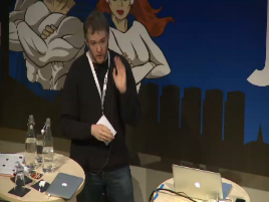
WebSocket and Java EE: A State of the Union
Justin Lee, Squarespace.comJava EE is beginning its climb into the cloud. In addition to updates to existing technologies such as JPA and EJB, Java EE 7 is introducing new technologies such as WebSocket that aim to provide bidirectional, asynchronous communication between a client and a server. This session introduces the protocol itself, discussing the various ways it differs from HTTP. It also touches briefly on how it differs from existing asynchronous approaches. From there the presentation moves to examples of existing APIs that provide support for the protocol and then discusses the current state of the JSR and what remains to be done before final delivery of Java EE 7 in the first half of 2013.
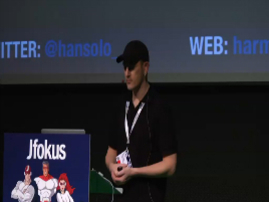
BeagleBoard, RasberryPi, HTML5 and Java
Gerrit Grunwald, Canoo Engineering AGUsually Java developers do not create code for embedded devices because there was no good Java support on these devices. Oracle figured out that there is a huge market for embedded devices and decided to support Java and JavaFX on hardware like the very popular Raspberry Pi and the BeagleBoard xM. With Java technology available on these platforms it's very interesting to see what you can do with this. This session will give you a short overview on the available technologies and will explain the interaction between different technologies and where they make sense. The uses case will be a temperature monitoring application where a Raspberry Pi running on Java7 embedded is measuring the temperature and sends the measured data to other devices. One of these devices is a BeagleBoard xM running Java7 incl. JavaFX for ARM which is visualizing the measured data from the Raspberry Pi on a touch screen. Also involved in the use case will be a desktop application running JavaFX to visualize the data and at least a mobile device visualizing the measured data using HTML5 Canvas.
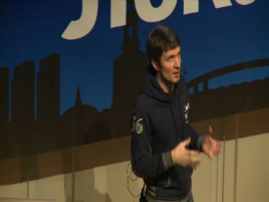
The web performance testing toolbox
Tobias Järlund, AftonbladetSo, your web application is slow. You read all the books, follow all advices, but users are still complaining. What now? It turns out that there are really good tools out there to help you, whether your problem is slow loading third party widgets, badly performing javascript or heavy paint times for DOM elements. But which one is right for you?
This hands on session will give guide help you assemble your own toolbox with the the different (mostly free) tools available for analyzing and troubleshooting web performance. You'll learn what you can expect from high level tools that measure page load time through synthetic or real user monitoring, down to low level javascript profiling and graphic rendering. We'll dive straight into the advanced parts of WebPagetest, Chrome Dev Tools, Dynatrace Ajax Edition and others, and you'll also get to know how to do most of this on actual mobile devices.
Flickr
Jfokus 2013
Detaljer
När: 4-6 februari 2013
Språk: Engelska & Svenska
Plats: Stockholm Waterfront Congress Centre
Kurser
27-30 May 2013 - Become Proficient in Java Performance Tuning
24-27 September 2013 - The Concurrency Specialist Course
